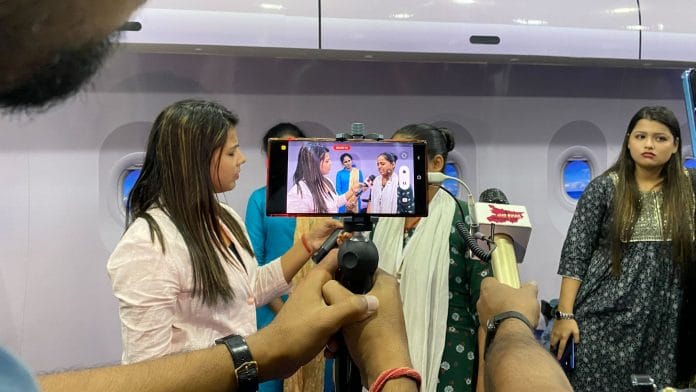When students in Bihar were scammed by an institute in Patna which promised them airline jobs in return for money, they knocked on every door for help — police, teachers, and activists. No one helped. Finally they turned to Nibha Singh, one of the YouTube Bahubalis of Bihar.
But Singh prefers to call herself Reporter Nibha.
She took their case and went charging with her camera and microphone to the institute and then to the police station. Officers at the station got so scared that they immediately gave the photocopy of the complaint that the students had been asking for.
“The system does not help these people, so they come to us and we raise their voice,” says the 25-year-old while walking to the Gandhi Maidan Police Station with the students who had been duped.
That is the power of these digital Bahubalis. Police, civil servants, politicians fear their power and reach and so they try to woo them. They are not journalists but they act like mini-Arnab Goswamis – angry, righteous, over-the-top and performative. Manish Kashyap, Ravi Bhatt, Reporter Nibha are the big names but they are part of a growing army of such YouTubers who hold sway in rural Bihar.
And now it is difficult to determine where their do-good act ends and vigilantism begins.
Nibha Singh is not a reporter or a citizen journalist. And she is not a social worker either. She is all of them combined and then some more. Her YouTube channel has nearly five lakh subscribers and on Facebook she has more than 4 lakh followers. The new Bihari influencers follow no rules except the ones they make.
One takes his clothes off outside the district magistrate’s official residence to rage against ‘corruption’, another stops a car and rebukes them for not following rules, a third enters a school and starts taking tests of teachers. They ask questions from officers and local leaders with a sense of entitlement that their millions of followers grant them. Their power is social media. They carry mics in their hands and wear ID cards with ‘PRESS’ written on them. People love their fearless, often screaming acts.
They do not have any formal training in journalism. They just have an insane amount of confidence, rage and social media followers.
Also read: Attention influencers. You may soon be fined lakhs for false ads, or not disclosing paid content
Army of YouTube Bahubalis
The young YouTube Bahubalis of Bihar are stars unto themselves and enjoy all the trappings of their newfound celebrityhood.
Wherever 31-year-old Manish Kashyap goes, hundreds of people carrying cell phones want to meet and click pictures with him. His name is known at airports, markets, and villages. Manish Kashyap calls himself ‘The Son of Bihar’.
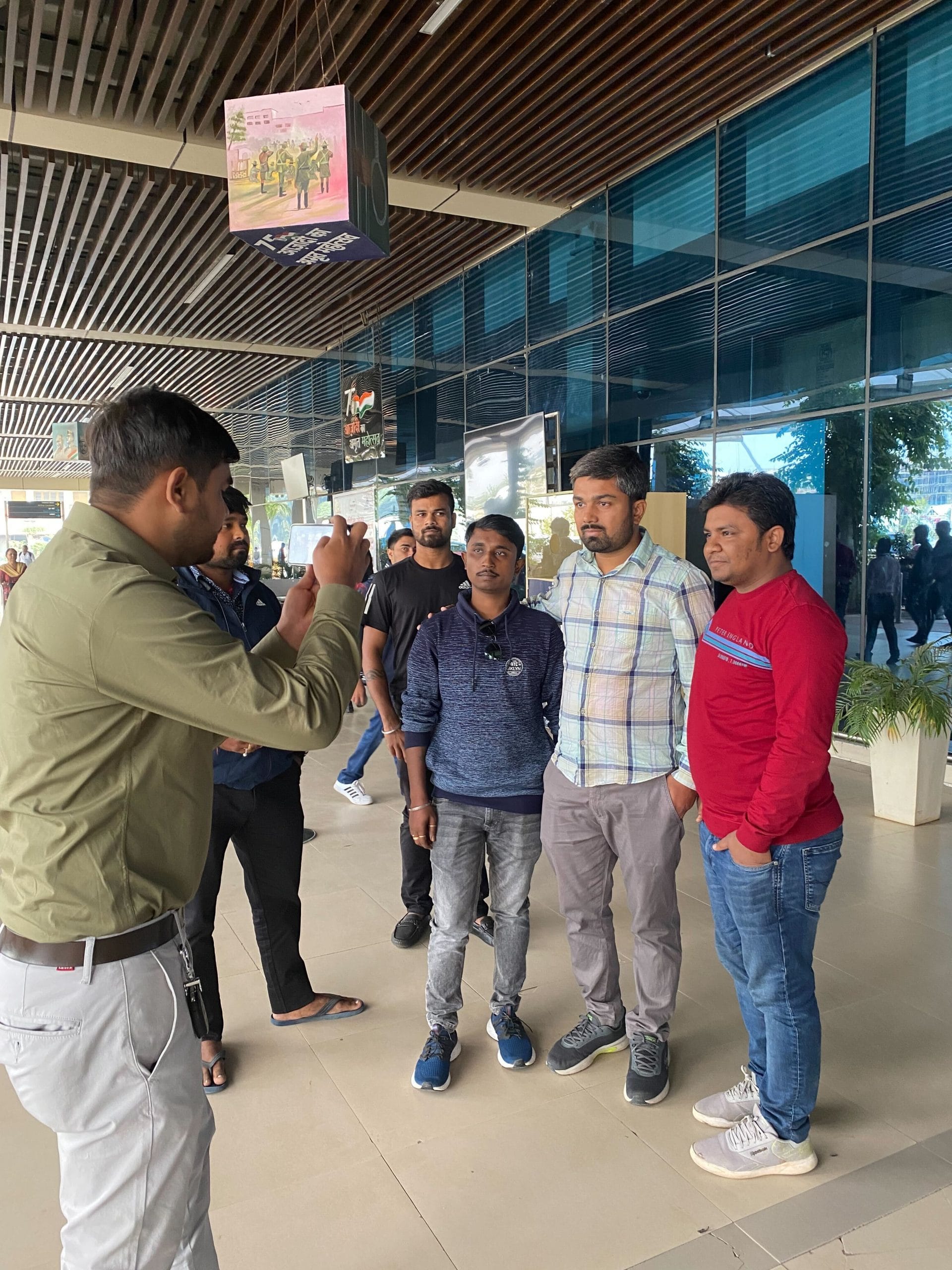
“I do not buy clothes anymore, people give them to me. One person brought the same clothes of two sizes and told me ‘bhaiya, I didn’t know your size, so bought two, please choose your size’. These clothes have also been gifted,” Kashyap says, pointing at the green and white shirt he was wearing.
His YouTube channel is named Sach Tak News, which has nearly 55 lakh subscribers. On Facebook, he has more than 32 lakh followers.
But too much of even something good can be frustrating. “People give me so much love but sometimes it is difficult to handle. I am also human and I get frustrated sometimes. They want to click pictures and my work gets affected,” he said. Kashyap’s black Tata Safari has scratch marks from his doting fans who all want a piece of him.
These influencers are often interviewed by budding YouTubers about their life journeys for tips.
Kashyap’s journey began in 2017 with a video that he made on a personal issue. An Exide store wasn’t forthcoming on his request to change his motorcycle’s battery. And so Kashyap recorded a video outside the shop, first greeting his viewers with ‘Bharat Mata ki Jai’ and then abusing the store staff for not resolving the issue.
“I will hit you guys with these batteries,” he tells the staff angrily. He then asked his followers to widely share the video because he wanted the store to be shut down.
The video went viral, which led the engineering graduate from Pune whose father is in the Army turn to recording videos full time, changing his focus from himself to issues of public interest.
Like Kashyap, Ravi Bhatt is also a YouTuber who calls himself an ‘independent journalist’. He has more than four lakh subscribers on YouTube. “Money is good,” Bhatt says about his earnings from YouTube and Facebook.
Bhatt completed his Bachelor in Science degree from Ram Manohar Lohia Avadh University in Faizabad, Uttar Pradesh, and went to Delhi in 2015 to work as an accountant. But he wanted to do something “different” and so started blogging in 2017. He is originally from Ayodhya but makes videos on Bihar and, in his words, he wants to make Bihar great again – he doesn’t wear the MBGA caps, though.
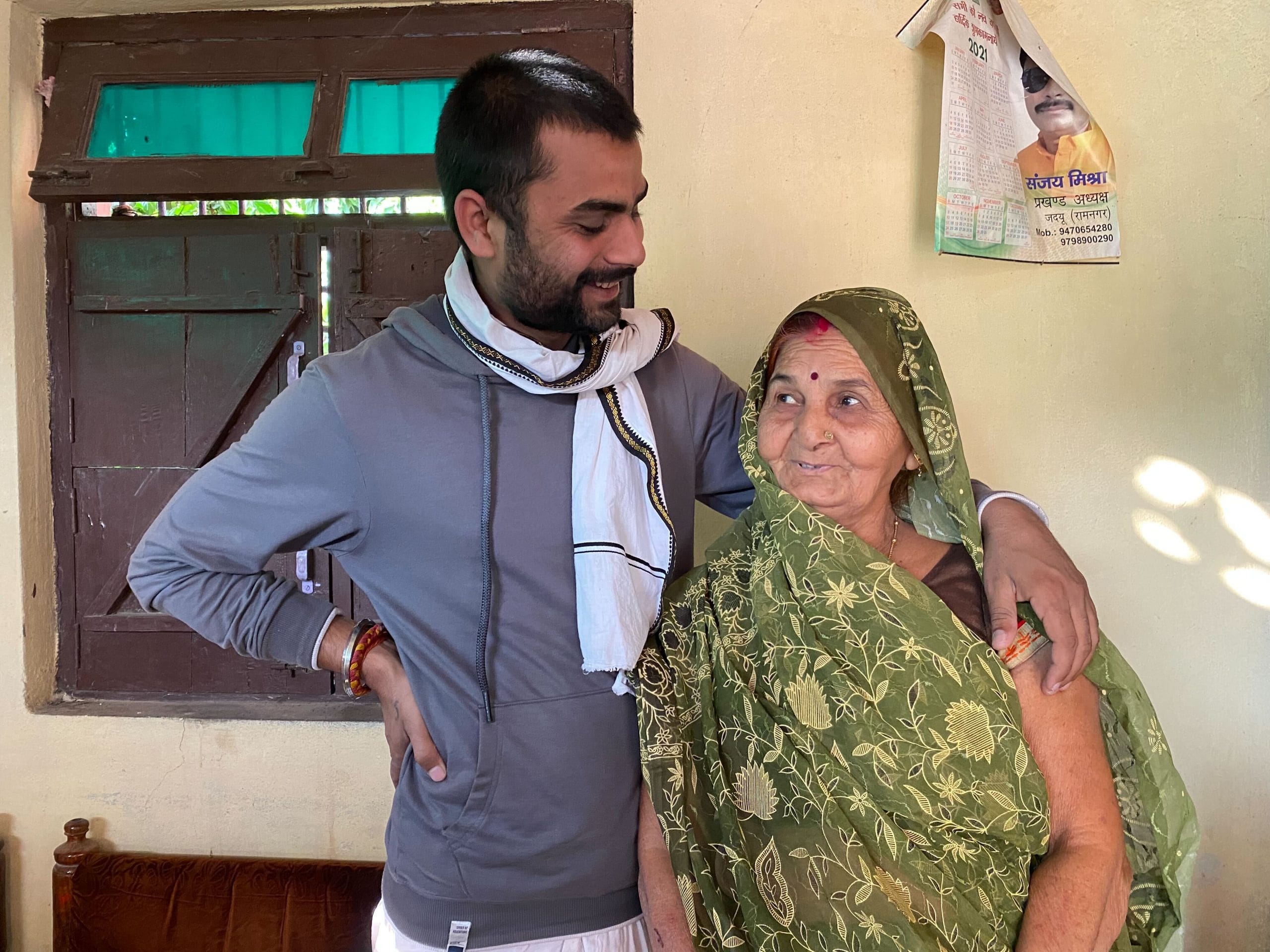
Kashyap doesn’t give much details about his earnings but he has a team of 20-22 people, and two offices — one in Patna and another in Delhi. “You shouldn’t ask a man about his salary,” Kashyap said laughing. He says he spends 20-30 per cent of his earnings on “helping people”. He claims to have bought students computers and laptops. Ravi Bhatt, too, said he is funding the education of two girls.
These YouTubers are being watched by people of all age groups in Bihar — from a school student to an old security guard at the Patna Airport. Everyone knows them. They not only have the power to influence news but even to create news.
But people see them as heroes. “I like the way you speak,” 55-year-old Ramesh tells Kashyap at the Patna airport, trying to get a picture clicked with him.
In this army of YouTube Bahubalis, Reporter Nibha is the only woman. She says she is different from other YouTubers like Manish Kashyap and Ravi Bhatt. “I do not make friends — be it leaders, singers, or other YouTubers. Once you make friends, you can’t question them,” she says, adjusting the mic in her hand while running on a Patna road. She has a fan following of her own, a star in her own right.
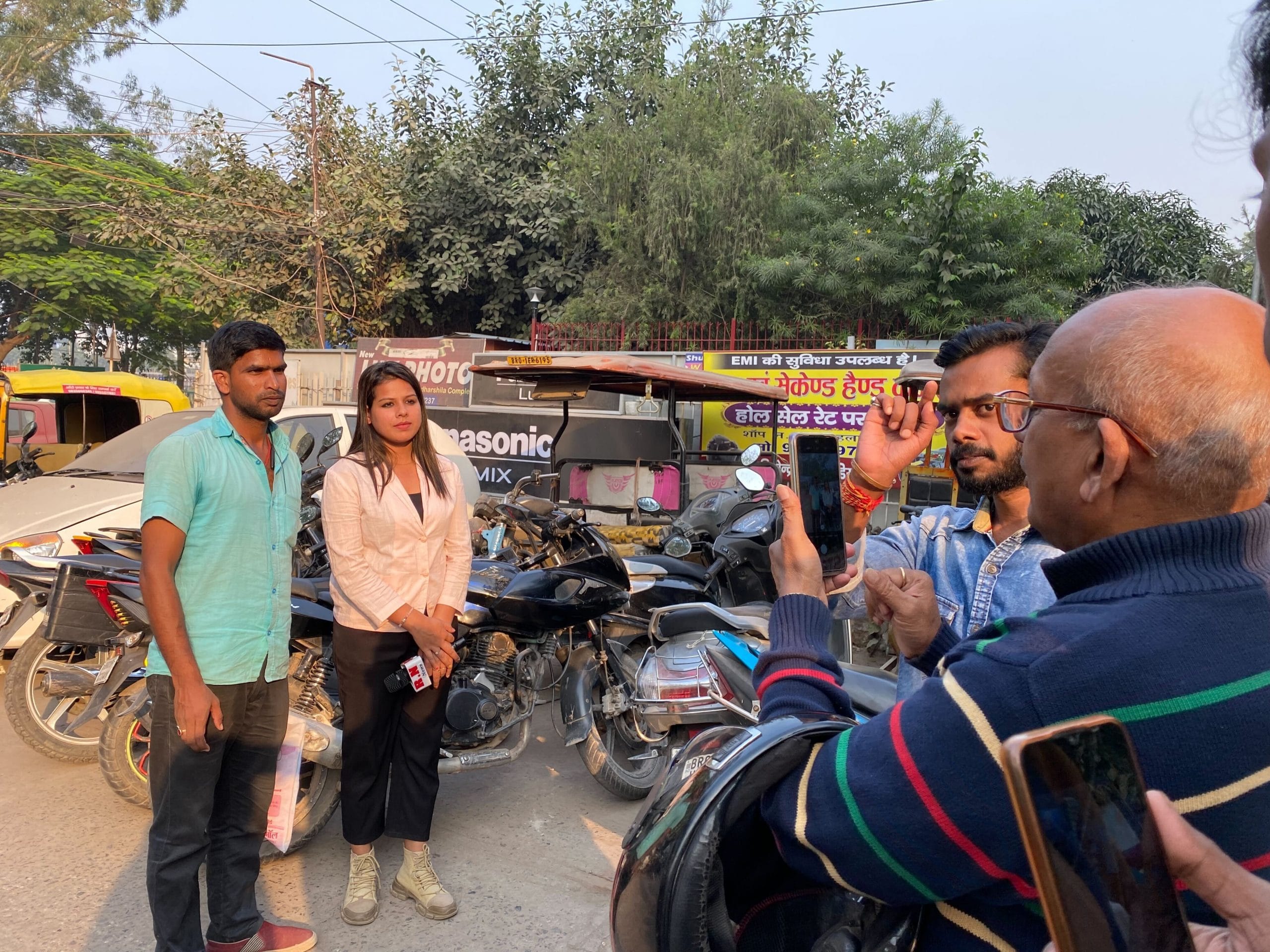
“I receive 20-30 calls daily. People ask me to cover issues like land dispute or when they face problems at hospitals, or when police aren’t attending to their complaints. There have been some incidents where my videos have changed things on the ground. My work has made some hospitals, schools, and roads better,” she says.
Reporter Nibha, a mass communication graduate from Makhanlal Chaturvedi National University in 2020, is more popular among students after she raised the issue of Bihar’s poor education system by asking questions from the teachers. “People love my work and I enjoy this love. Not a single day goes by when I don’t work. They like me. That’s why I receive the gifts but I don’t take money from anyone,” she says, showing a red purse that she received from a fan.
Also read: India’s ‘kidfluencers’ are raking in millions. No law to protect them
Screaming their way to sensationalism
Most of these YouTubers’ videos are sensational. Sometimes they are seen questioning policemen and local politicians; at other times, they tell girls whom they should marry. Sometimes they look for people or content that could make their videos viral.
In one of the videos, Ravi Bhatt questions a Station House Officer why the charge sheet was not filed in 82 days. The police officer patiently explains that as per law, a charge sheet can only be filed in 90 days. But Ravi Bhatt, who clearly doesn’t know this fact, continues to fire away a volley of questions with the goal of painting the police as villains.
In a reel that is going viral on social media, Manish Kashyap says that a girl should not marry a Muslim boy. He aggressively repeats it six times in the one-minute clip. “If the parents don’t agree, then one should not marry against their wish. If parents agree to your choice, then marry anyone you like,” Kashyap says.
Kashyap went to Mehrauli to shoot a video on the Shraddha murder case. But instead of giving any news to his audience, his video, which has a million views, had only questions and patriarchal statements that reiterated his staunch support of moral policing.
“Landlords should not only ask for the documents of the boys and girls but also of their parents and talk to them on the phone. Only then they should give the room on rent,” he says. In the same video, he then turns to the crowd. “Come here baby boy,” he grabs a teenager and showers him with commands that if he loves someone, he should first take his parents’ permission.
Ravi Bhatt’s YouTube channel is full of such videos in which he is either talking about young achievers, eloping girls, or a dispute with another YouTuber.
For one of his videos, he went to interview Sonu, the child who became popular after asking questions from Chief Minister Nitish Kumar seeking admission in school. “Why didn’t you take Sonu Sood’s help?” Bhatt screams at the child. “Why didn’t you go to Dehradun when you were offered admission there? Was the entire thing a TRP stunt?” Bhatt kept throwing questions one after another at the boy without giving him any moment to answer.
Reporter Nibha receives calls or Instagram messages every day about some incident happening somewhere. On the days there aren’t any interesting story to cover, she is out on the streets. “Every day we get something, or we find policemen violating some rule.”
Police officers in Bihar say that these YouTubers target them and harm the system. “Police are the easiest target. These people with a mic and a YouTube channel search like spies where police officers are and what they are doing wrong and make videos of it. There are shortcomings in the police force in some places but this method (of YouTubers) is not correct,” a senior Bihar Police officer says on the condition of anonymity.
“The internet gave them access to YouTube and now they are using it to target government employees. If some police officer doesn’t give them attention, they start targeting him. They take money and have created a whole market but no one questions them. What they are doing is not journalism,” the officer added.
Also read: How Instagram reels is a mirror to modern casteism in India
Realising the power
On a recent November morning, Manish Kashyap arrived at the newly opened service centre in Patna to get his Tata Safari, worth Rs 22 lakh, serviced. The centre’s owner treats him like a celebrity and himself walks to Kashyap seated in the car. When Kashyap tells him that he wants a camera fitted in his car, the service centre’s owner answers with ‘Ho Jayega bhaiya Ji (it will be done, brother)’. That was his answer to Kashyap’s every query. The owner makes tea and offers cookies. In return, Kashyap makes a 90-second clip exhorting his viewers to come to this centre if they need their car repaired, and promises a longer video on the store later.
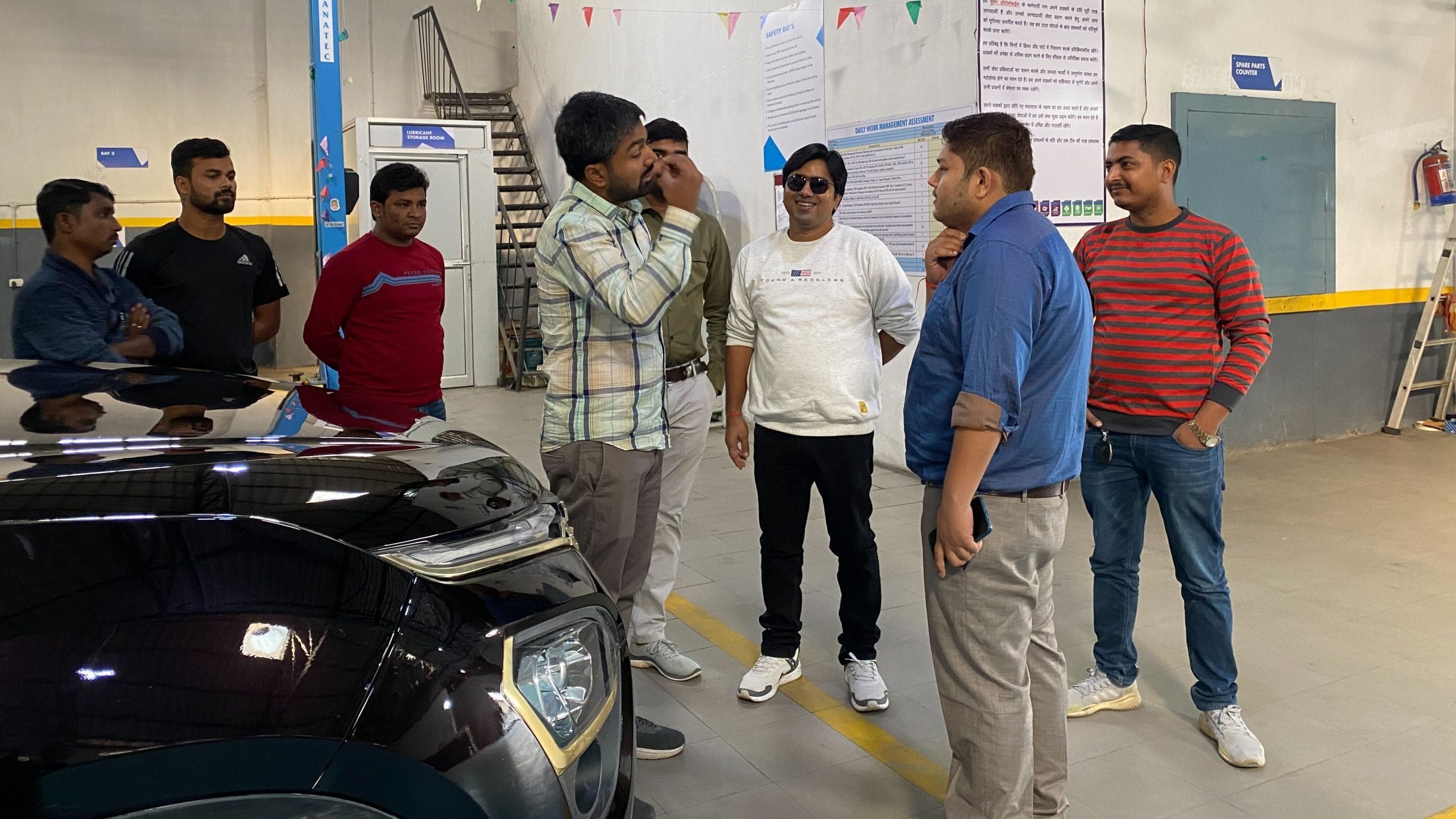
Kashyap’s most popular videos include questioning leaders, the murder of a journalist, selling of scrap left from a sugar mill, etc.
Often these YouTubers also interview each other. Recently, a case of suicide of six people came to light in Nawada on which Kashyap reached the spot to make a video, but a crowd of people gathered there and there was a scuffle with him in the crowd. This news became so big that Bhatt made a couple of videos on it, once interviewing Kashyap over phone. This video has been viewed more than two lakh times.
“This Manish is Reporter or wrestler, He always bully people,” a user commented on this video.
“Manish brother, you are on the right path, keep doing your work. Don’t take tension,” another wrote.
Their network is huge. A few days ago, a matter of collecting funds for a 10-month-old child named Ayansh in need of treatment came up. All the YouTube Bahubalis came together to collect funds.
“On our own, we collected Rs 8 crore,” claims Kashyap. “Which journalist in India today goes to the ground and helps people even after having such huge fan-followings. Not even a single one,” he adds with pride. Kashyap dismisses the allegations that the funds collected for the child’s treatment were misappropriated.
Also read: Gen Z would rather be YouTubers than astronauts, poll shows. But here’s the dark side
Cashing in on the fear
The YouTuber ecosystem is expanding. Some are also from small villages deep in the heart of Bihar inspired by the desire to play the power game.
Abhishek Mishra, a YouTuber, does not know how to use social media much, nor is he very educated, but he knows that when the camera starts rolling, he has to make a video that people like. His videos often contain abuses and on one occasion, he says he also took a ‘bribe’ to do the work.
“We took Rs 2,000 from a contractor and then showed him the video. He was scared. With that money, we helped the needy,” Abhishek claims. “I just make the videos. Some boys from the village edit them,” says the 26-year-old, dressed in a lungi and sweater.
The fear of digital Bahubalis among local leaders and officials has reached wide and far in Bihar. Everyone is afraid of their virality. But Ravi Bhatt says the actual fear is of “our questions”. “When I turn on the camera, they become afraid. If they are afraid, they will improve,” says Bhatt, and cites the example of a road that was built after one of his videos.
“Initially, their work seemed good in that they were making the public aware. But now only bullying is visible. There is a system for everything,” says Professor Rajeev Kamal, who teaches anthropology at AN Sinha Institute in Patna.
Back in Abhishek’s village, her daughter has the same answer whenever someone asks about her father. “Papa has gone to shoot. He will make a video.”
(Edited by Prashant)



